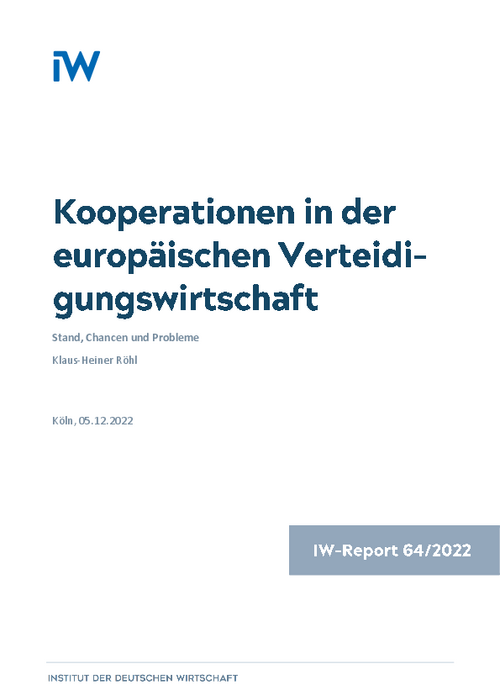Industrial cooperation can offer a variety of advantages. This holds especially for innovative projects, because research and development expenditures can be spread over several partners and the respective expertise of the participants can be efficiently utilised.

Cooperation in the European defense industry

Industrial cooperation can offer a variety of advantages. This holds especially for innovative projects, because research and development expenditures can be spread over several partners and the respective expertise of the participants can be efficiently utilised.
In the defence industry, in addition to the novelty of the defence system and the often considerable R&D expenditure involved, the motive for cooperation is that the number of units produced is usually low. Economies of scale can be achieved in production through cooperation between companies from several countries that are procuring the corresponding weapon system. In the defence sector, the industrial advantages of cooperation are complemented by political motives; the countries involved are striving for closer military and economic cooperation among allies. This IW Report looks at the industrial goals and advantages, but also the potential problems of cooperation projects in the defence sector. It also analyses the existing alliances and political goals that form the basis of most cooperations between countries, also focusing on the most recent Franco-German cooperation projects, which are in danger of faltering. The IW Report concludes with suggestions for overcoming obstacles to cooperation and a conclusion and outlook.

Cooperation in the European defense industry

More on the topic

Pharmaceutical industry: Increasing pressure on the labor market
The shortage of skilled workers poses significant challenges for pharmaceutical companies in Germany and is expected to become increasingly problematic in the context of demographic changes. Concerning Germany's positioning in the international competition ...
IW
Industrial policy at the turn of the times
The current debate on industrial policy vacillates between the extreme positions of an orthodoxy of rejecting state action and a naive belief in the state's ability to control structural change.
IW